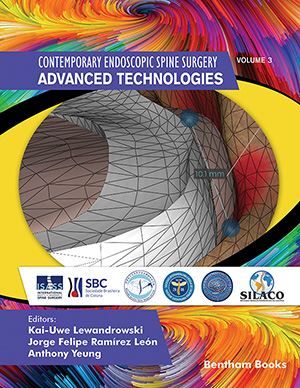Abstract
Regenerative medicine is a subspecialty of medicine that seeks to recruit and
enhance the body's own inherent healing armamentarium in the treatment of patient
pathology. In regenerative spine care, the intention is to assist in the repair and
potentially replace or restore damaged tissue through autologous or allogenic biologics.
In the authors' opinion, future spine care will likely evolve into a blend of prevailing
strategies from interventional pain management and minimally invasive spine surgery.
This form of spine care nowadays is commonly called interventional pain surgery. The
interest in regenerative medicine in general and in interventional pain surgery of the
spine is growing given the high patient awareness of problems with traditional spine
surgery, whose focus is on decompression of pinched nerves and correction of spinal
instability and deformity. However, reoperation- and complication rates are high with
those open corrective spine surgeries as many of the spine's degenerative conditions are
being only treated surgically when the disease has progressed to its end-stage. The sole
application of image-based medical necessity criteria for surgical intervention in the
spine seems slightly out of step with the growing demand for less aggressive and
burdensome procedures that could perhaps be instituted earlier in the disease process
where the goal is to heal the spinal injury or repair damage from the degenerative
process more naturally. In this chapter, the authors review and discuss the current
state of the art in regenerative biologic therapies and interventional pain care of the spine from their perspective as endoscopic spine surgeons. Simplifying therapeutic
measures and strategies are at the heart of what patients request of us as surgeons. This
field's applications in modern spine care are clearly in their infancy, except for fusion.
The authors will discuss potential applications of select advanced biologics
technologies and their attempts at integrating them into their endoscopic spinal stenosis
surgery program to treat degenerative spinal disease and instability-related
symptomatic end-stage degenerative vacuum disc disease in the elderly.
Keywords: Biologics, Endoscopic spine care, Regenerative technologies.






















